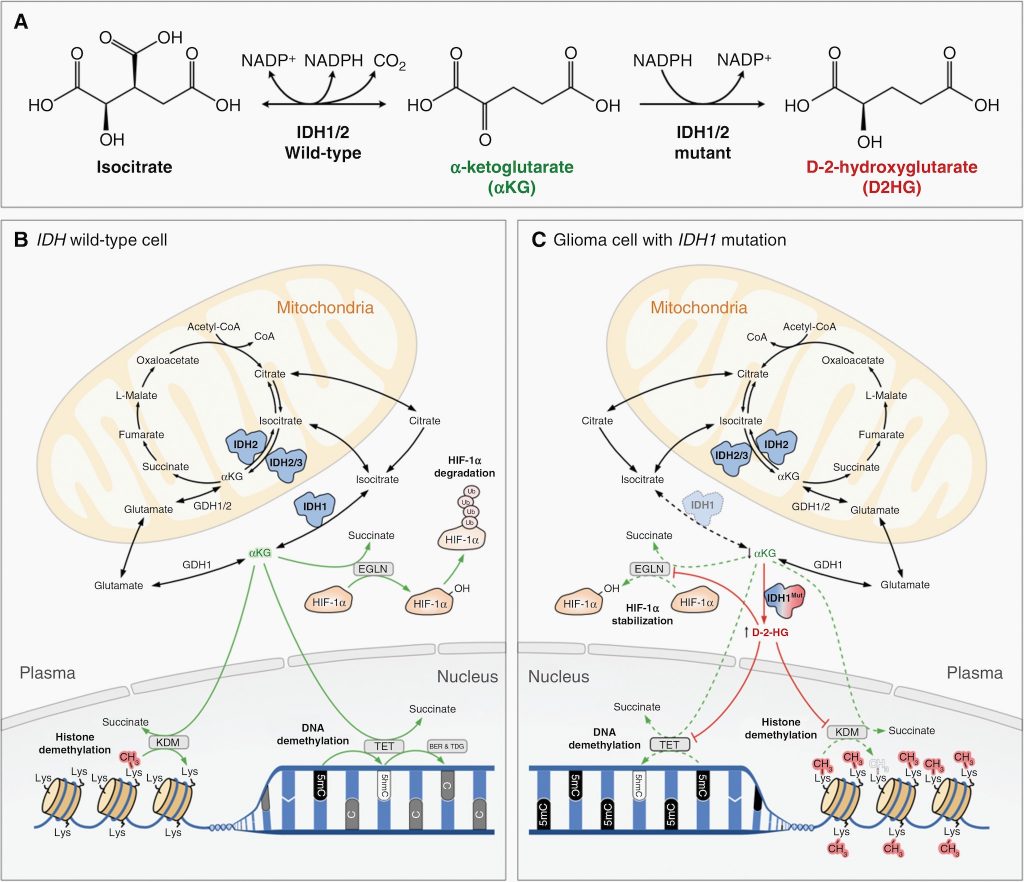I recently listened to a Society of Neuro-Oncology podcast titled “IDH mutant gliomas; SNO consensus Review“. The podcast was basically a prompted question and answer session hosted by Dr. Ankush Bhatia with doctors Julie Miller, Nicolas Gonzalez Castro, Samuel McBrayer and Patrick Wen about their recent manuscript published in Neuro-Oncology, titled “Isocitrate dehydrogenase (IDH) mutant gliomas: A Society for Neuro-Oncology (SNO) consensus review on diagnosis, management, and future directions“. The paper is open access, published online in October 2022 and in print via Volume 25, Issue 1 (i.e. January 2023).
Overall I was intrigued by the podcast content. The no-nonsense professional tone was a tad monotonous. As I found bits of the podcast interesting, I looked up the manuscript to dig deeper. The article contents are comprehensive. I wish SNO podcast had follow-up episodes diving deeper into some of the article’s larger sections. Heck they could have an entire podcast on epidemiology, mechanisms of oncogenesis and pathology/ molecular pathogenesis. A more detailed discussion on progression standard, targeted and immune therapy would also be greatly appreciated. Beyond the consensus format, I feel an open discussion format would be better for the challenges, areas of uncertainty and future directions portion.
The progression/ recurrence portion is of particular interest to patients and care partners, as most of us reading this manuscript are post initial diagnosis/ standard therapy. Some are post-progression/ recurrence. I suspect many of us have questions around re-irradiation and other follow-on treatment, especially when making treatment decisions with neuro-cognitive decline/ quality of life implications vs overall survival. I’ve yet to see definitive studies on recurrent IDH mutant glioma treatment, let alone one quantifying likelihood and type of decline due to re-irradiation, or comparing proton vs photon radiation therapy or concurrent chemo vs targeted vs immune therapy. Likewise I wonder if there are outcome differences based on molecular drivers for patients who experience recurrence within 5, 10 or more years from initial diagnosis. What about those of us who remain the same grade vs those whose cancer becomes a higher grade glioma?
This manuscript adds color to my involvement with the Low Grade Glioma Registry, specifically its OPTIMUM Project, led by Elizabeth Claus PhD MD, Bethany Kwan PhD MSPH and Roel Verhaak PhD. I am hopefully we can collect and share real world data to help give credence to researcher hypothesis to these challenging questions. I do recognize more definitive clinical trials are needed to confirm future informed decisioning.
